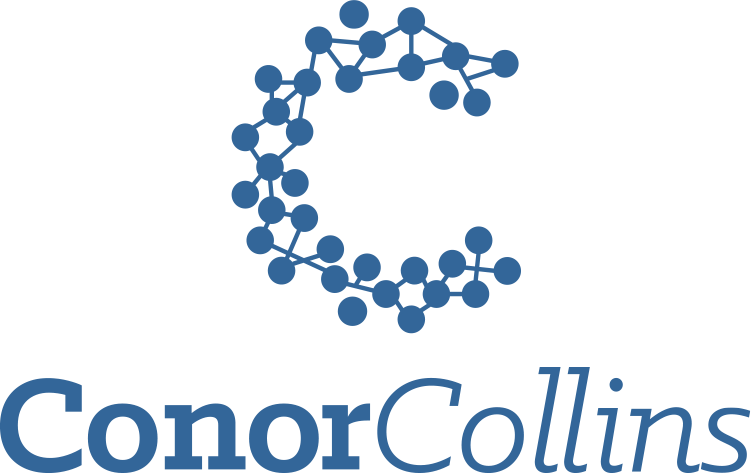A few years ago, I accepted a volunteer position with my massage therapy Association in New Brunswick. I remember how I felt when I learned of my nomination for a Regional Director position. I remember feeling like it was a leap; that I didn’t have experience working with a Board (or even a Committee for that matter), and that someone else would make a better candidate. Looking back on it now, I’m glad that I didn’t let the opportunity slip through my fingers. I benefited from a lot of professional development thanks in part to the position that I accepted with my Association. If you’re considering volunteering for your Association but have reservations, this blog might help you feel more confident in making a choice.
A chance to prove imposter syndrome wrong
I used to think that with trying new things consistently over time, I’d somehow be able to get rid of imposter syndrome entirely. This hasn’t been the case in my experience, but then again, that expectation wasn’t a reasonable one. The more I talk to others in leadership positions, the more it seems that imposter syndrome is a common cross that people bear, and it never entirely goes away. Confidence comes with practice though, and trying new things does make the imposter syndrome voice smaller, so if you’re talking yourself out of a leadership role simply because you think you can’t do it, maybe reconsider whether that’s actually true.
The Association provided me with resources and with training sessions so that I could wrap my head around how formal meetings work. Meetings were conducted using Robert’s Rules of Order to stay organized and on-task. While this seemed to be a “new language” for me at the beginning, I soon started picking up the flow of our meetings. Within one training session, I learned what the expectation was to conduct our business. It seemed much more cumbersome from the outside, but it was actually quite simple. Surprise, surprise; my imposter syndrome was making a mountain out of a molehill, again.
It’s easy to talk ourselves out of just about anything when we’re feeling intimidated. The benefits of trying something new and witnessing your own growth really is a medicine against the tired drone of imposter syndrome. Don’t let imposter syndrome be the reason that you avoid taking risks; you might never completely get rid of imposter syndrome, but over time its voice gets much quieter and it doesn’t come as frequently. Taking the risk is worth it.
The perks can be surprising
Did you know that your College probably counts your volunteer time with your Association as Continuous Education credits? Most people that I share this with in New Brunswick seem surprised. In fact, I know of people on the Board that are able to collect enough credits through their volunteer hours that they don’t spend a dime on CEU courses throughout the year. I don’t want to insinuate that taking courses isn’t valuable, it certainly is, but if you happen to be in a position where you have to save money then volunteering with your Association could potentially save you thousands of dollars over the years in course fees.
It gets better though. Your association could have monetary discounts off of Association-sponsored courses. In my province when you work with the Association of New Brunswick Massage Therapists (ANBMT), every 3 months you get $200 off any ANBMT-sponsored course. That’s up to $800 in savings every year on courses. There are limitations, such as a rule that says the discount isn’t cumulative. Every 3 months it resets back to $200. Regardless, this is a substantial perk that makes your volunteer work that much sweeter. The Associations may differ in the perks that they offer, so checking in with your own Association is important.
Knowing the challenges well and advocating for your profession
There’s always a number of challenges facing the profession and the Association at any given time- this is the greatest lesson learned from volunteering with the ANBMT. From HST-exemption to new drafts of the massage therapy Act being put before legislature, to the smaller daily challenges of maintaining organization and forward-momentum on behalf of hundreds of massage therapists- the work is simply everywhere you look. Any amount of support helps.
If you’re worried about over-committing to a Board position, then volunteering on a Committee instead might be for you! Committee work is one of the most helpful things you can do. Committee work doesn’t necessarily mean that you have to be a Board member. For example, in the ANBMT, the Executive Committee is made up of Board members, but the Assault Prevention and Education Committee (APEC) can be made up of peer massage therapists who aren’t on the Board. You can control how much work you’re willing to provide the Association based on the various roles. Committees can meet anywhere from once or twice per month to weekly- it just depends on the work at hand, so do your research and ask questions before you take a job to make sure it’s a good fit.
Either way, when you know the challenges that face your profession intimately, you know better how to maneuver around them. Don’t forget that massage therapy is a self-regulated profession; the more we individual massage therapists participate in self-governance, the better off we are as a whole. We have a stronger voice together that we can use to lobby government for HST-exemption, for example. The numbers game really counts for self-regulated professions, so volunteering your time with your Association doesn’t just benefit your individual province; as is the case with our push for HST-exemption, your efforts in volunteering can benefit us all. A unified voice can get a lot done.
Extend the benefit of the doubt, there is a lot happening behind the scenes
It’s really easy in the time of social media to post our frustrations for public consumption while we’re in a reactive state and not being reasonable. The amount of times that I’ve seen members posting their feelings without first inquiring about what factors led to changes being made is frankly alarming. It makes me worry for group cohesion and potentially the health of the massage therapy profession as a whole. Extending the benefit of the doubt that your Board is doing the best that they can to serve you is important and fair. After all, the Board members are themselves massage therapists and your peers. They want a good outcome because it affects them too.
I’ll provide you an example. Last year our Association decided to switch insurance providers because we were warned that our premiums would all be going up. The Board makes decisions on behalf of the entire membership, and it was decided that members would not be happy to pay the extra premiums since costs of living were already so high. The transition to the new provider was more challenging than expected, and the members grew frustrated with the paperwork involved. A newsletter was sent from the Association explaining that the tedious paperwork was indeed unexpected, but would be a one-time problem since the new provider needed to on-board the entire membership. Once on-boarded, renewals would be much easier going forward; this was a temporary problem. Unfortunately, the newsletter didn’t reach every member and there was a small handful that posted a lot of aggressive feelings towards the Association online. They even went so far as suggesting that others should keep their money and ditch the Association.
Leaving your Association is a short-sighted move. For reasons already provided above, there is strength in numbers and the more members your Association has, the stronger their access to resources. For example, we were able to pay for a lawyer to review a draft massage therapy Act that was being forwarded to the provincial government by our College. This new draftmassage therapy Act contained a number of changes in it that were concerning to the Association. A review by a lawyer can be very costly, and we were able to pay for it because we have a strong membership…but if outrage online turns into threatened group cohesion, which turns into decreased registrations, this could affect us all.
Group cohesion is relevant to all massage therapists and all Associations across Canada. Regardless of where you’re from, please, when you’re on social media and notice someone airing their grievances against your Association, remember that there is another side of the story and extend the benefit of the doubt. If you have concerns, contact your Executive Director so that they can answer your questions. To those who have in the past expressed their anger against their Association (and their colleagues/peers) online; perhaps a better use of your voice would be to get involved instead! Lending your energy in a more constructive and unifying way makes us all stronger. We’d all benefit from you using your voice, just realize that we’re on the same team. If you have any questions about volunteering your time with your Association, make sure to contact them directly. Contributing my time with the ANBMT in New Brunswick has been one of the most rewarding parts of being in the massage therapy profession, and I highly recommend taking a chance to try it!
About the Author
Ashley is a Massage Therapist from Moncton, New Brunswick with a special interest in managing concussions and persistent pain. Outside of clinical practice, she is a Lead Instructor in our “Understanding the Complexity of Concussion” courses as well as the Editor of this website’s blog. She recently became a College Instructor in massage therapy at ACTM in Fredericton, New Brunswick.
Ashley decided to pursue massage therapy as a second career in order to help others. With prior experience in the field of Archaeology at the Master’s level, Ashley is an integral part of course development, helping to improve and assess the quality of our course delivery.



Recent Comments